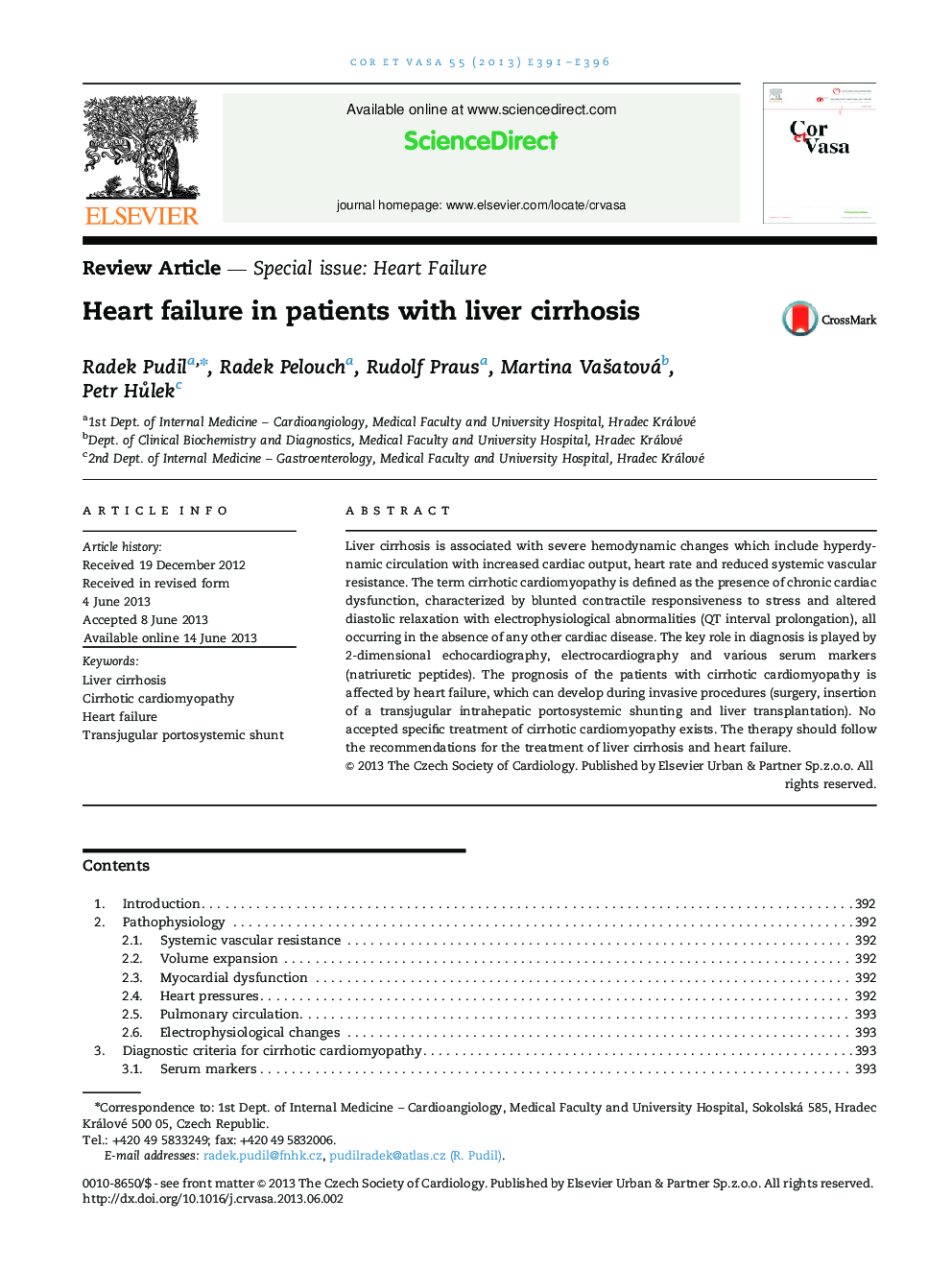| Article ID | Journal | Published Year | Pages | File Type |
|---|---|---|---|---|
| 2728455 | Cor et Vasa | 2013 | 6 Pages |
Liver cirrhosis is associated with severe hemodynamic changes which include hyperdynamic circulation with increased cardiac output, heart rate and reduced systemic vascular resistance. The term cirrhotic cardiomyopathy is defined as the presence of chronic cardiac dysfunction, characterized by blunted contractile responsiveness to stress and altered diastolic relaxation with electrophysiological abnormalities (QT interval prolongation), all occurring in the absence of any other cardiac disease. The key role in diagnosis is played by 2-dimensional echocardiography, electrocardiography and various serum markers (natriuretic peptides). The prognosis of the patients with cirrhotic cardiomyopathy is affected by heart failure, which can develop during invasive procedures (surgery, insertion of a transjugular intrahepatic portosystemic shunting and liver transplantation). No accepted specific treatment of cirrhotic cardiomyopathy exists. The therapy should follow the recommendations for the treatment of liver cirrhosis and heart failure.
